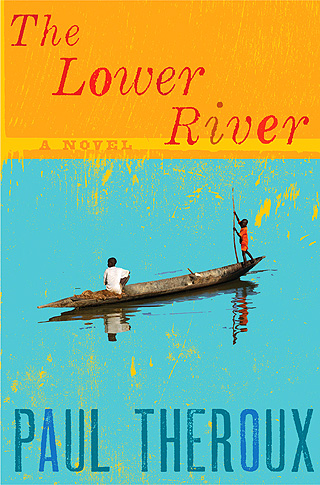 A 70 year old man has spent the past 50 years fondly recalling 4 years he spent in a tiny village in Africa. Or maybe the story is set a few years back and he is only 60.
A 70 year old man has spent the past 50 years fondly recalling 4 years he spent in a tiny village in Africa. Or maybe the story is set a few years back and he is only 60.
We open with our hero, such as he is, accidentally letting his wife find out that he has been flirting with a large number of women via email. The man and his wife weren’t happy anyway, so they get a divorce and go there separate ways. He sells his business and uses a bit of the money to go back to The Lower River. He has this idealized vision of Africa from his days in The Peace Corp.
So far, so good. The story zips along for the first third of the book. Then he goes to Africa.
He finds that the whole place is not as nice as he remembers. AIDS has killed off a good deal of the population. The isolated people he knew have become cold and cynical and care only about money. He sees a man he once knew who has wasted his entire life hanging around a tiny town playing chess and our hero sees what could have happened to himself. And yet he still acts like a fool by taking a suitcase full of cash into the wilderness-while one man knows where is he going and that one man doesn’t care or take any notice.
The rest of the book is the long and dreary tale of how our tired old hero is imprisoned, falls in love with a sixteen year old girl, and tries countless times to escape. But, since our hero is an old man, he has a hard time making a fast getaway in the hundred degree heat, he can’t quite bring himself to have sex with the starving native girl, and he has all kinds of bad luck on all fronts.
After a while the endless trials and tribulations are boring and meaningless. The bad guys, who aren’t as bad as they could be, know how much money he has and yet they keep badgering him into giving them money instead of just taking it. Don’t real bad guys just kill you and steal your money? But that seems to be part of the message, these people aren’t really Bad, they are just Hungry-and Hungry people sometimes do bad things.
The ending is abrupt and predictable. A standard bit of deus ex machina.
In the end, Paul Theroux seems to want us to hate both the heartless natives and the clueless outsiders. I didn’t care much for the sad sack old man either. It’s a tale of victims with entitlement issues, there are only two solutions to their problems-take them out of Africa or kill them in their tracks.
The Lower River was well written, but it was a story that left me wondering why it was written at all.
- Starfield – A Few Months In - December 23, 2023
- Still Just A Geek by Wil Wheaton - November 1, 2022
- Starfield First Impressions of Gameplay Reveal - June 13, 2022
I guess it is back to Africa for Theroux. I read an excellent novel that took place in a fictionalized version of Malawi by him years ago. It was “Jungle Lovers” I think he has several books that take place there. Theroux was in fact a Peace Corps worker who was booted out of Malawi.
I have read many books by him, and in fact had the first page about Paui Theroux on the Internet when the Web was young. I most recommend his nonfiction book about England, “Kingdom by the Sea”, and his refridgerator novel “The Mosqiuto Coast”.
I never read the book, but did watch the Harrison Ford movie. I wasn’t that impressed with the story of a nutcase making ice in the middle of nowhere.
I seem to be a minority vote on Paul Theroux’s uber depressing and mildly annoying writing. Other reviews paint The Lower River in a much better light-so much so that I can’t believe they read the same dull and pointless story that I read.
So if you like other Paul Theroux books, you might well like this one.
Your summary of the “Mosquito Coast” is correct. However, this jungle refrigeration science-fiction novel worked much better in book form. But yes it was very much a nutcase making ice in the middle of no-where.
His “O-Zone” is much more directly genre science fiction, but that one, I think, failed.